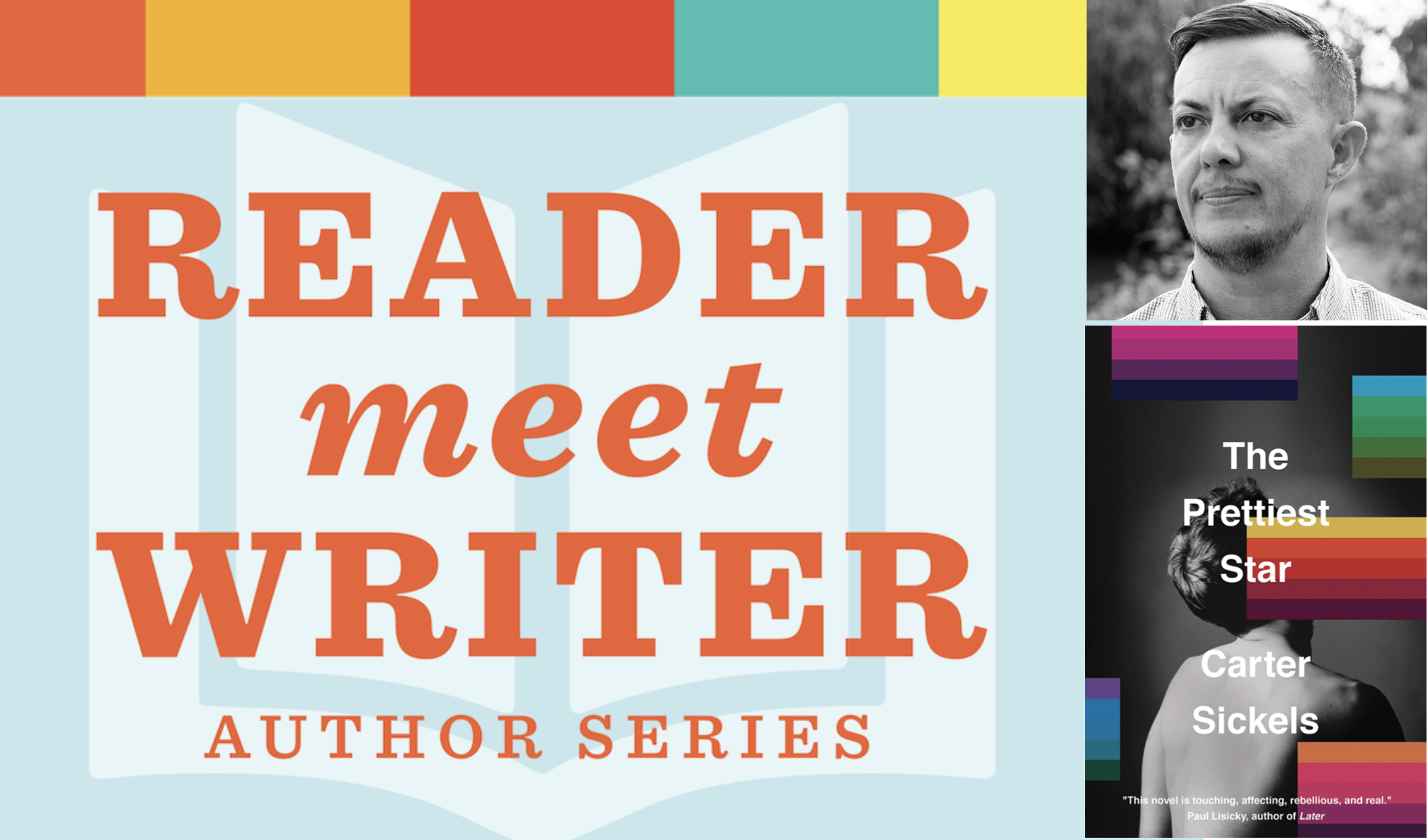
- This event has passed.
Reader Meet Writer: Carter Sickels Discusses The Prettiest Star (Virtual Event)

 Join us Wednesday, 3 p.m. to meet Carter Sickels, author of the novel The Evening Hour. He is the recipient of the 2013 Lambda Literary Emerging Writer Award, and has been awarded scholarships to Bread Loaf Writers’ Conference, the Sewanee Writers’ Conference, VCCA, and the MacDowell Colony. His essays and fiction have appeared in various publications, including Guernica, Bellevue Literary Review, and BuzzFeed. Carter is Assistant Professor of English at Eastern Kentucky University, where he teaches in the Bluegrass Writers Studio Low-Residency MFA program.
Join us Wednesday, 3 p.m. to meet Carter Sickels, author of the novel The Evening Hour. He is the recipient of the 2013 Lambda Literary Emerging Writer Award, and has been awarded scholarships to Bread Loaf Writers’ Conference, the Sewanee Writers’ Conference, VCCA, and the MacDowell Colony. His essays and fiction have appeared in various publications, including Guernica, Bellevue Literary Review, and BuzzFeed. Carter is Assistant Professor of English at Eastern Kentucky University, where he teaches in the Bluegrass Writers Studio Low-Residency MFA program.
The Prettiest Star Publisher: Hub City Press | May 19, 2020 | 9781938235627
 Small-town Appalachia doesn’t have a lot going for it, but it’s where Brian is from, where his family is, and where he’s chosen to return to die.
Small-town Appalachia doesn’t have a lot going for it, but it’s where Brian is from, where his family is, and where he’s chosen to return to die.
Set in 1986, a year after Rock Hudson’s death brought the news of AIDS into living rooms and kitchens across America, Lambda Literary award-winning author Carter Sickels’s second novel shines light on an overlooked part of the epidemic, those men who returned to the rural communities and families who’d rejected them.
Six short years after Brian Jackson moved to New York City in search of freedom and acceptance, AIDS has claimed his lover, his friends, and his future. With nothing left in New York but memories of death, Brian decides to write his mother a letter asking to come back to the place, and family, he was once so desperate to escape.
The Prettiest Star is told in a chorus of voices: Brian’s mother Sharon; his fourteen-year-old sister, Jess, as she grapples with her brother’s mysterious return; and the video diaries Brian makes to document his final summer.
Carter Sickels’s stunning novel is an urgent story about the politics and fragility of the body, of sex and shame. Above all, The Prettiest Star explores the bounds of family and redemption. It is written at the far reaches of love and understanding, centering on the moments where those two forces stretch toward each other and sometimes touch.
